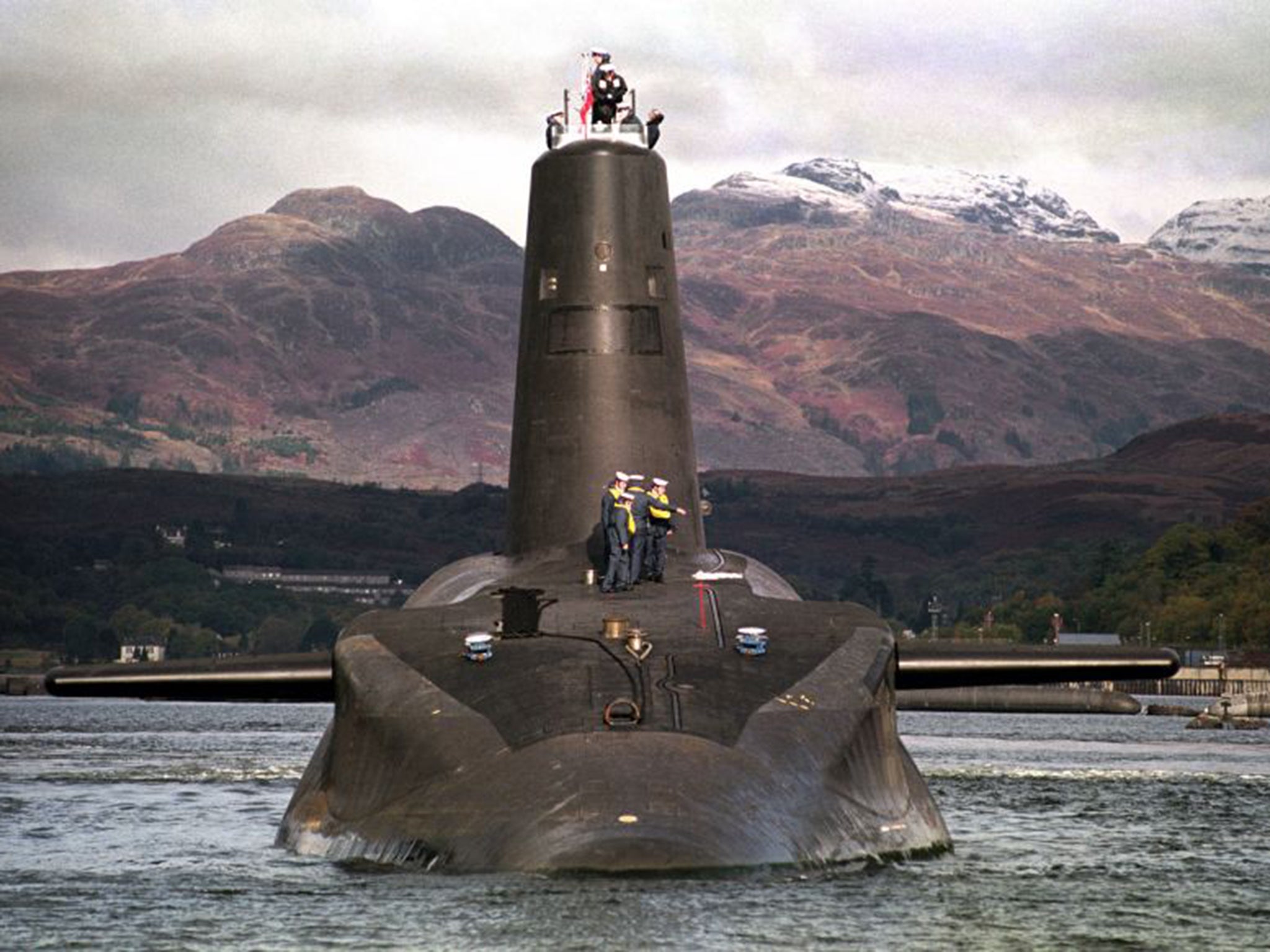Your support helps us to tell the story
From reproductive rights to climate change to Big Tech, The Independent is on the ground when the story is developing. Whether it's investigating the financials of Elon Musk's pro-Trump PAC or producing our latest documentary, 'The A Word', which shines a light on the American women fighting for reproductive rights, we know how important it is to parse out the facts from the messaging.
At such a critical moment in US history, we need reporters on the ground. Your donation allows us to keep sending journalists to speak to both sides of the story.
The Independent is trusted by Americans across the entire political spectrum. And unlike many other quality news outlets, we choose not to lock Americans out of our reporting and analysis with paywalls. We believe quality journalism should be available to everyone, paid for by those who can afford it.
Your support makes all the difference.The overall cost of replacing Britain’s Trident nuclear weapons system would be £167bn, double previous credible estimates, according to new calculations based on official figures.
The Reuters news agency reports that a replacement would cost nearly double the proportion the defence budget as its predecessor.
The revelation comes shortly after the anti-Trident SNP swept nearly every Scottish seat at the Scottish general election and Labour elected anti-Trident leader Jeremy Corbyn as Leader of the Opposition.
The figures, released by the Ministry of Defence following parliamentary questions by Conservative MP Crispin Blunt, show ministers believe the cost of four new submarines would be £25bn.
But the Government also says maintenance of the system over its lifetime would cost six per cent of the annual defence budget – which ministers have pledged to hold at two per cent of GDP.
According to IMF GDP growth forecasts for the UK, the total figure would therefore be £167bn, Reuters says.
“The successor Trident program is going to consume more than double the proportion of the defence budget of its predecessor,” Mr Blunt told the news agency.
“The price required, both from the UK taxpayer and our conventional forces, is now too high to be rational or sensible.”
Previous estimates of the cost of the system have been significantly lower.
The Royal United Services Institute estimated in 2013 that a new system would cost between £70bn and £80bn for its lifetime.
Ministers have previously suggested the cost could be as low as £20bn, but this calculation is widely believed to exclude various other factors.
The independent Trident Commission said in 2014 that the cost of replacement would be around £100bn.
The new figures relate to the lifetime cost of the system between 2028 and 2060.
A decision on whether to replace the system is due next year. Labour has suggested that its MPs could be given a free vote in Parliament, meaning many of its MPs will back it.
Parliamentary arithmetic means the vote is likely to pass, barring a surprise last-minute rebellion by Conservative MPs and a three-line whipped vote by Labour.
A spokesperson for the Ministry of Defence said: "At around six per cent of the annual defense budget, the in-service costs of the UK's national deterrent are affordable and represent an investment in a capability which plays an important role in ensuring the UK's national security."

Join our commenting forum
Join thought-provoking conversations, follow other Independent readers and see their replies
Comments